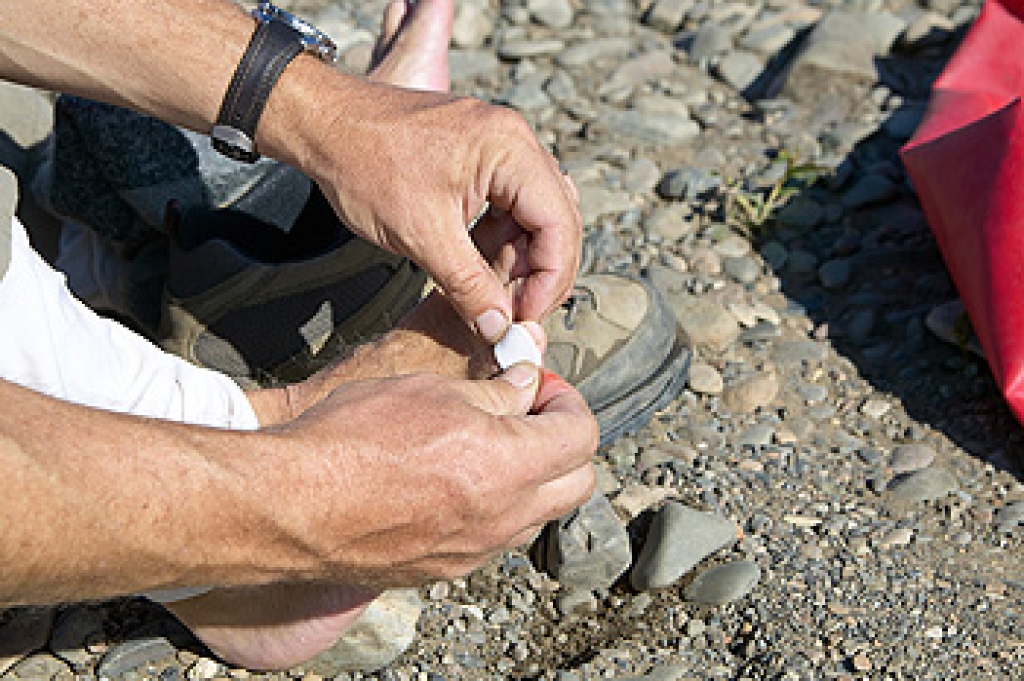
Foot blisters are painful sores that form on the skin due to friction, moisture, and improper footwear. When hiking, the repetitive motion of your feet can create friction, especially if your shoes do not fit properly. Moisture from sweat or wet conditions can further increase the risk of blisters by softening the skin, making it more vulnerable to irritation. To prevent blisters while hiking, choose well-fitting shoes designed for your specific foot type and terrain. Wearing moisture-wicking socks can help keep your feet dry while layering with a thin liner sock can reduce friction. Foot blisters can be painful and become infected, interrupting the day’s activities. If this has happened to you, it is suggested that you confer with a chiropodist who can treat blisters, and offer you additional preventive methods.
Blisters can usually be treated at home, however, if you have recurring blisters or experience significant discomfort or pain, please consult with one of our chiropodists from West Toronto Foot & Ankle Clinic Inc. . Our chiropodist will assess your condition and provide you with quality foot and ankle treatment.
What Is a Blister?
A blister is a small pocket of fluid in the upper skin layers and is one of the body’s natural responses to injury or pressure. Blisters can also result from burns, fungal or viral skin infections, and the feet are particularly prone due to ill-fitting footwear and friction. Friction on the skin causes the upper layer of skin to separate from the lower layers. The space that this separation creates then becomes filled with a liquid called serum, which protects the lower layers of skin.
Treatment
If you notice a blister on your foot, you can cover it with a soft bandage or dressing to protect it. Popping the blister is discouraged. Doing so exposes the raw skin underneath it to bacteria and also raises the risk of infection. If a blister pops naturally, let it drain before covering it with a bandage. Blisters usually heal on their own or with home treatment, however, if your blister is recurring, very painful, or appears infected, it is recommended that you see a chiropodist for treatment.
Prevention
You can help to prevent blisters by wearing comfortable, well-fitted shoes. Keep your feet dry by wearing moisture-wicking socks and dust your feet with talcum powder if they tend to get sweaty. If you have areas on your feet that are more susceptible to blisters, you might be able to prevent the blister from forming by covering it with a pad.
If you have any questions please feel free to contact our office located in Toronto, ON .
